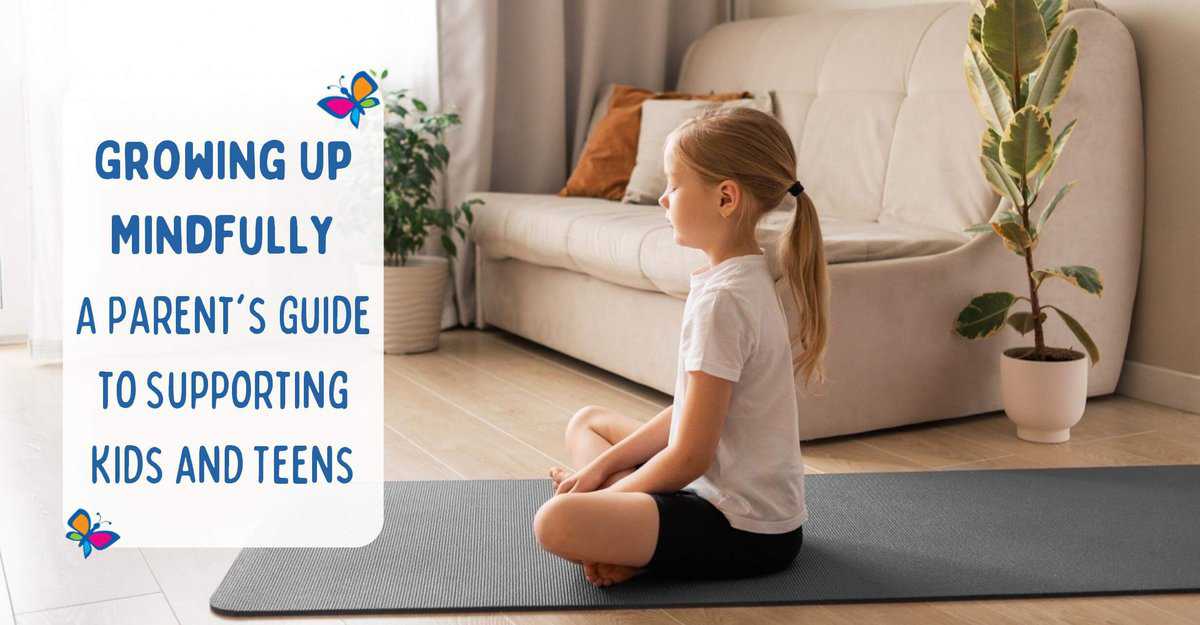In today’s fast-paced world, stress and anxiety have become prevalent issues among children and teenagers. With the pressure to excel academically, social challenges, and constant exposure to technology, many youngsters struggle to maintain balance and well-being.

Fortunately, research suggests mindfulness can significantly benefit children and teens by promoting stress relief and overall health and wellness. As parents, it is crucial to understand and support the development of mindfulness in our young ones. Here are a few suggestions for each age group.
Preschool Age (3-5 years):
Introducing mindfulness to preschoolers can lay the foundation for a lifetime of well-being. At this age, start with short and straightforward exercises that capture their attention. For example, a mindful breathing exercise where your child counts their breaths silently or listens to the sound of their breath can help them develop focus and relaxation skills. Incorporating mindfulness into daily routines, such as mindful eating or a mindful bedtime ritual, can also be effective.
School-Aged Children (6-12 years):
As children enter elementary school, their understanding of mindfulness can deepen. Encourage them to engage in activities that cultivate present-moment awareness. One such technique is the “body scan.” Have your child lie down and focus on each part of their body, starting from their toes, moving upwards to their head, paying attention to any sensations they feel. This exercise helps them develop body awareness and enhance their ability to tune into their physical and emotional needs.
Middle School Children (13-15 years):
Middle school can be challenging as teens navigate the complexities of adolescence. Mindfulness can provide valuable tools to help them cope with stress and the emotional rollercoaster. One helpful practice is mindful journaling. Encourage your child to write down their thoughts and feelings daily without judgment or criticism. This practice can foster self-reflection and emotional regulation and improve overall mental well-being.
High School Students (16-18 years):
For teenagers, mindfulness can help them manage academic pressure, peer relationships, and personal growth. Introduce your teen to mindful breathing exercises, such as the 4-7-8 technique, in which they inhale for four counts, hold their breath for seven counts, and exhale for eight counts. This technique activates the body’s relaxation response and reduces anxiety. Encourage your teen to designate a quiet space for practicing mindfulness, whether it’s a corner in their room or a peaceful area in the house.
Tips for Parents:
→ Be a role model: Children and teens learn best by observing their parents. Practice mindfulness yourself and let them see you engage in mindful activities.
→ Provide guidance: Gently remind them to practice mindfulness, but do not force it. Encourage them to explore what works best for them.
→ Keep it fun: Incorporate mindfulness into daily activities by making them enjoyable. For example, you can turn a mindful walking exercise into a nature scavenger hunt or practice mindful eating by savoring different flavors and textures.
→ Be patient: Developing mindfulness skills takes time and practice. Encourage your child’s efforts, celebrate their progress, and offer support when they face challenges.
Fostering mindfulness in children and teens can have a profound impact on their overall well-being. By introducing age-appropriate mindfulness exercises and creating a supportive environment, parents can empower their young ones with essential tools to navigate life’s challenges with greater ease and resilience. Mindfulness is a gift that parents can give their children, promoting a lifelong practice of self-care and well-being.


